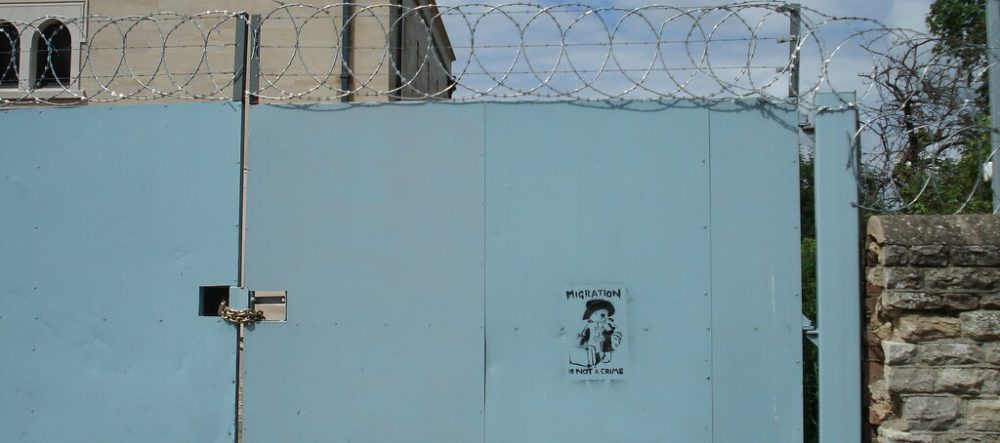Lancaster University is delighted to be hosting Behrouz Boochani (via live stream) and Omid Tofighian at Lancaster on the 6th of February, from 12-13.30pm, Lecture Theatre 4, Welcome Centre. Please do come along!
Behrouz was incarcerated as a political prisoner by the Australian government on Manus Island from 2013-2017 and then in Port Moresby (Papua New Guinea). His book No Friend but the Mountains: Writing From Manus Prison (Picador 2018) (translated by Omid) has won numerous awards including the 2019 Victorian Prize for Literature.
They will be introducing and discussing their work on ‘Manus Prison Theory’ (details below and in link). The event is free but please do register so we can keep a track of numbers for the room booking.
https://www.eventbrite.co.uk/e/introducing-manus-prison-theory-knowing-border-violence-tickets-90536494091
*****************
Title: Introducing Manus Prison Theory: Knowing Border Violence
Abstract:
Manus Prison theory is a coherent intellectual, creative and political project inspired by four years of ongoing research and organising between Behrouz Boochani and Omid Tofighian in what we refer to as a shared philosophical activity. Similar collaboration, consultation and sharing precede the project and include networks of scholarship and collective action. The theory has experienced a heightened interest and urgency since the release of No Friend but the Mountains: Writing from Manus Prison (Boochani 2018) and after winning prestigious awards. It aims to analyse the detention industry by identifying its connections with other forms of violence and domination; this approach focuses on how systems of oppression are interconnected, mutually reinforcing and multipliable. By considering an intersectional and decolonial approach and framing the analysis of Manus Prison within the discourse pertaining to kyriarchy we expose how border violence is rooted in Australia’s colonial imaginary and pervades socio-political structures and institutions.
Guest Speakers: Behrouz Boochani (joining via live stream) & Omid Tofighian
Discussants: Bruce Bennett, Senior Lecturer in Film Studies & Gwyneth Lonergan, Wellcome Trust Research Fellow in Social Science and Bioethics
Behrouz Boochani is Adjunct Associate Professor of Social Sciences at UNSW, author and journalist. He was incarcerated as a political prisoner by the Australian government on Manus Island from 2013-2017 and then in Port Moresby (Papua New Guinea). His book No Friend but the Mountains: Writing From Manus Prison (Picador 2018) has won numerous awards including the 2019 Victorian Prize for Literature. Boochani is also co-director (with Arash Kamali Sarvestani) of the 2017 feature-length film Chauka, Please Tell Us The Time; collaborator on Nazanin Sahamizadeh’s play Manus; and associate producer for Hoda Afshar’s video installation Remain (2018).
Omid Tofighian is an award-winning lecturer, researcher and community advocate, combining philosophy with interests in citizen media, popular culture, displacement and discrimination. He is Adjunct Lecturer in the School of the Arts and Media, UNSW; Honorary Research Associate for the Department of Philosophy, University of Sydney.
